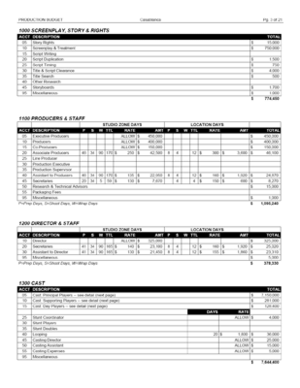Let’s face it, Recruiters and HR Managers get a
hard time. The industry battles with bad press and a perception that it’s
all about fees for recruiters or handing out tissues for the HR teams. Not
exactly! It’s more like a plate-spinning marathon, especially when you’re
juggling a deluge of candidate applications against a vacancy wish list.
Some of these candidate CVs and applications can range from entertaining to
frustrating to downright baffling.
ISV
Software asked the Recruitment and HR industry to share the most
irritating things you see on CVs. Here are the Top 10 responses:
1.
Spelling and Grammar Errors – this shows lack of attention and time
spent on the document. Favourites include a candidate who had worked at
‘Goldman Sucks’ and another who interacted well with ‘steakholders’. Although
it’s worth mentioning that a few spelling errors crept into the responses. Whether
intentionally or not we should perhaps check ourselves before pointing the
finger.
2.
Clichéd phrases that add nothing of value – how many candidates have
“excellent interpersonal skills”, are “people-friendly” or “work well on their
own and as part of a team”? Righty-ho, them and everyone else I’m afraid.
3.
Too much personal information – Views on the inclusion of date of
birth, marital status, religious beliefs etc. varied across cultures. Certainly
in the UK, Canada and the US it is illegal to ask for this information.
Candidates however, may be unaware of the legislation and it is the norm in
some countries to include personal information, even detailing their height and
weight. It’s worth bearing in mind that the candidate’s cultural background
will influence what they do and don’t include on their CV. From a
recruitment consultant’s point of view though, it’s all information that needs
deleting before the CV can be submitted to the client.
Keeping personal information in mind, another big
bug-bear is the weird and wonderful email addresses that candidates think it’s
appropriate to include!
4.
Obscure formatting – different fonts, large blocks of text, varied
line spacing… Not only does this make the CV look like a ‘cut and paste’ job,
it makes it difficult to extract the relevant information.
5.
Irrelevant information or experience – an engineer applying for a
procurement role, a graduate applying to be Head of Department… why? If there
are relevant skills, the CV should be tailored to highlight these. Instead
you’re often left searching for the information.
6.
Dear Sir - or Mr when you’re a woman and vice versa. This was even
more contentious when the candidate has access to your name. Even worse when
the application mentions the wrong role or incorrect company name.
7.
Photos – again, this varied depending on global location but photos
are a definite no-no for UK recruiters. Particularly candidate’s holiday snaps,
provocative pictures or group photos including the family pet!
8.
Churn out that job spec - candidates who solely list their duties
without adding quantifiable achievements or their contribution make the job so
much harder.
9.
Generic cover notes – a template cover letter or email taken from the
internet. You’ve seen them before and they get pretty tiresome. Plus they
sometimes make you wonder if the candidate has read the job spec at all!
10. Keep it short
– lengthy CVs are a real turn off especially since there is so much guidance
outlining that 2 pages is ideal. The extreme mentioned was a 7 page CV
followed by a series of voicemails and social media requests. There’s
persistent and then there’s stalking!
Honourable mention should also go to hobbies that
are irrelevant (reading, socialising, watching their child’s football team) and
personal statements that incorporate much of the above especially from the
candidate that is ‘perfect for the job’. If only it were that simple!
Thanks to Amanda Davies at ISV for compiling the list!
If you want help to make sure that your CV avoids these errors and hits the correct spot, makes the right impression and communicates your achievements and skills contact Mary Hope.. www.maryhopecareersuccess.com







